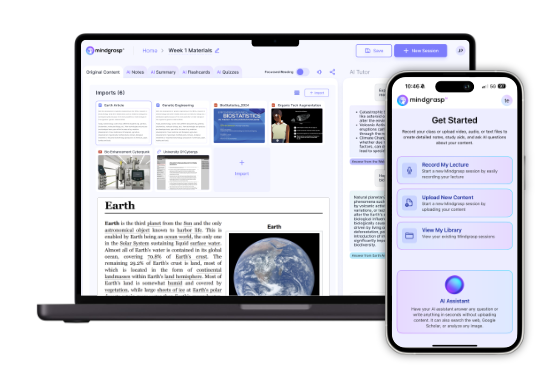
If you want to learn physics, start by getting hands-on to active your learning!
Work with friends to ask questions and solve problems together. Break things down into smaller parts to avoid feeling overwhelmed. Don’t just memorize; make those math skills your best buddies!
Use spaced practice to help you remember. And remember, reflecting on mistakes helps you grow.
Want to uncover more fun ways to tackle physics? Stick around to see what's coming next!
Key Takeaways
- Engage in active learning by collaborating in small groups and exploring questions to deepen understanding beyond rote memorization.
- Strengthen your math skills, particularly in algebra and calculus, as they are essential for solving physics problems effectively.
- Utilize spaced repetition and interleaved practice to reinforce concepts and improve retention of material over time.
- Apply systematic problem-solving techniques and conduct error analyses to identify and rectify misunderstandings in your approach.
- Reflect on your learning regularly to track progress, identify knowledge gaps, and adjust your study strategies accordingly.
Boost Your GPA Faster with Mindgrasp
Instantly turn your class notes into smart summaries, flashcards, and quizzes—study less, learn more, and ace your exams.
Try it FreeActive Learning Methods
When you think about learning physics, you might picture a teacher lecturing while students scribble notes—yawn, right?
Learning physics shouldn't feel dull; it’s time to ditch the lectures and spark your curiosity!
Instead, consider active learning methods like peer instruction and inquiry-based approaches. These strategies get you involved and excited!
-
Work in small groups to tackle problems together.
-
Ask and explore questions, rather than just memorizing facts.
-
Use cool tools like classroom polling to see what you understand.
-
Additionally, utilize resources such as AI tools for physics students to enhance your study experience and comprehension.
Effective Study Strategies
Active learning methods are a fantastic way to immerse yourself in physics, but let’s not forget about how you study on your own. For effective study strategies, focus on:
-
Building a conceptual understanding—don’t just memorize!
-
Breaking complex problems into smaller parts (it makes them easier).
-
Trying "what if?" scenarios to push your thinking.
-
Strengthening your math skills (calculus, algebra, trigonometry) to tackle problems confidently.
Practice systematic problem-solving techniques, and don’t skip the easy ones!
Discuss strategies with friends, and teach concepts to reinforce your own understanding. Trust me, it’ll make a difference!
Try Mindgrasp for Free!
Experience an easier, faster way to boost your GPA. Sign up now to try Mindgrasp AI for free and see how AI-powered learning transforms your study routine.
Try it FreeRetention Techniques
Retention techniques are your secret weapons for mastering physics! To keep those concepts fresh in your mind, try spaced repetition. Review material at longer intervals, like weekly or biweekly, to really nail it down.
Also, mix things up with interleaved practice; solve different types of problems together. This way, you’ll learn to apply principles in various situations, which is super helpful!
Don’t forget to solve practice problems and use low-stakes quizzes to test yourself. Review your errors, too—it's a great way to spot weaknesses.
Keep it fun, and you’ll be a physics whiz before you know it!
Math Skills Integration
Math skills and physics go hand in hand, so if you want to excel in physics, you’ll need to brush up on your math game!
Start by practicing with integrated units—these connect math concepts like algebra and calculus directly to physics problems. For example, when you tackle kinematics, use equations like ( s = ut + frac{1}{2}at^2 ) to visualize relationships.
Don't forget error analysis; catching math mistakes can save you a headache later.
Remember, translating physics scenarios into algebraic sequences can make all the difference.
Metacognition & Reflection
Reflection is a powerful tool that can really boost your understanding of physics. By engaging in reflection exercises, you can spot cognitive shifts in your thinking. Here’s how to make it work for you:
-
Weekly contrasts: Write down what you thought versus what you learned.
-
Trigger analysis: Identify moments that changed your perspective.
-
Mistake decomposition: Break down errors to see where you went wrong.
These practices help you uncover gaps in your knowledge and refine your problem-solving skills. Plus, they make learning physics a bit more fun—like solving a mystery!
Conclusion
So, there you have it! Learning physics can be fun and rewarding if you mix in active learning, solid study habits, and a little self-reflection. For example, think about Jamie, who struggled with concepts until he started forming study groups with friends—now, they tackle problems together and even share laughs! You’ve got the tools, so immerse yourself, ask questions, and don’t be afraid to experiment. Physics isn’t just about formulas; it’s about discovering how the world works!
Download Mindgrasp from the App Store
Access Mindgrasp at your desk for in-depth research and writing projects, or use the mobile version to easily access your content on-the-go or record live lectures.
Download the iOS App
